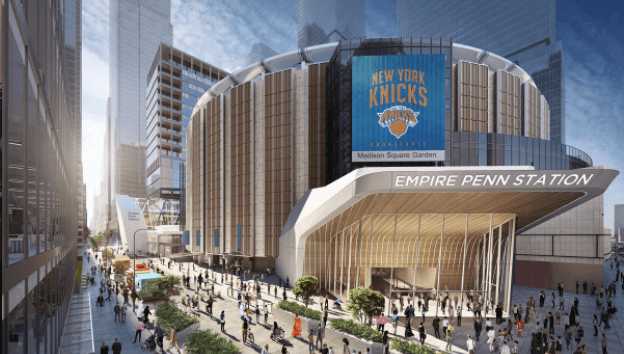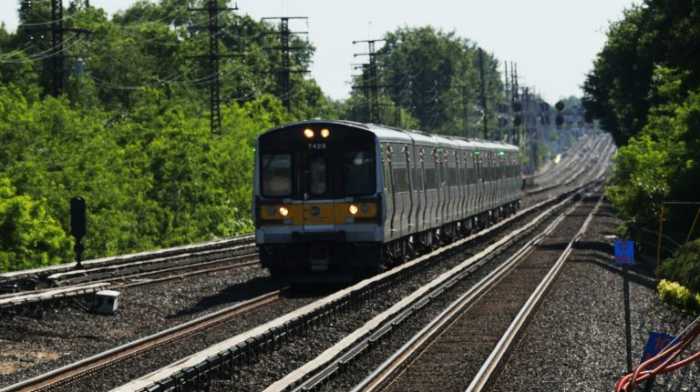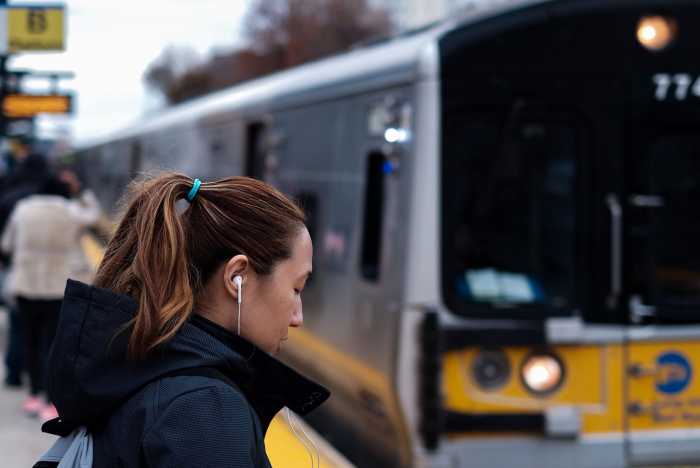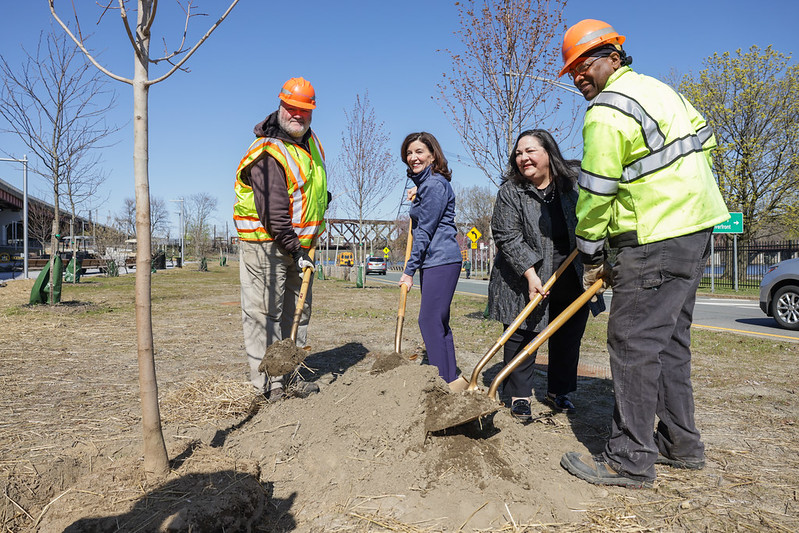A new vision for the aesthetics of the revitalization of Penn Station is taking shape as the Metropolitan Transportation Authority unveiled new renderings of what the nation’s largest transit hub could look like in the coming years.
During the MTA’s Wednesday board meeting, Chief Development Officer Janno Lieber presented the new look which will provide grand entrances and glass ceilings to flood the concourses with sunlight; a departure from the cavernous, contemporary conditions commuters experience daily.
The master plan for the Empire Station Complex expands the dated amenities at Penn Station not only to the west with Moynihan Train Hall which opened in December, but also with the acquisition of property a block to the south, something Lieber said will be fully facilitated by the Biden administration’s infrastructure plan.
“It is especially timely for us to be looking at this at the moment when the Biden administration’s American Jobs Plan infrastructure initiative has begun to percolate its way through the Congress, because this is a transformative project, really,” Lieber said. “Transforming Penn Station not only is necessary to make sure that the Gateway vision – the long-awaited Gateway vision – is achieved, but also because Penn Station speaks so powerfully to the goals, the climate goals, and the equity goals that the Biden administration has set forth so strongly.”
A slideshow of the presentation by Lieber can be viewed here.
According to Lieber, the Gateway Tunnel project is quickly gathering momentum in Washington D.C. with support from Transportation Secretary Pete Buttigieg and President Joe Biden, which prompts the MTA to begin preparations for the increased traffic that Penn Station will need to handle.
The Biden administration hopes to pump $85 billion into transit, $55 billion to bring systems into a state of good repair, as well as $25 billion for expansions and $5 billion for renovations to infrastructure that will bring stations into compliance with the Americans with Disabilities Act. This will be dispersed nationally.
While the renderings provided by the MTA are offer a few different options for divvying up space, MTA Chairman Pat Foye said the agency is nowhere near coming to any major decisions on the direction the development will take apart from the need for capacity improvements in anticipation of the Gateway Tunnel project which will go into the southern annex.
“It will have substantial transportation benefits for Long Island Rail Road customers, Metro-North customers, subway customers, as well as commuters on New Jersey Transit and those traveling from Boston and Washington and other places on Amtrak,” Foye said. “Obviously, no decision is close to being made, but a compelling opportunity in the beginning of a serious public discussion about the options for Penn Station.”
Governor Andrew Cuomo’s administration believes the expansion of Penn Station will anticipate a growth in mass transit ridership, which pre-pandemic was about 600,000 daily commuters through the transit hub, but by 2038 could be around 800,000.
“The Empire Station Complex is a transformative project that will support and deliver on the long-delayed Gateway vision for the entire East Coast and enhance the passenger experience in North America’s busiest transportation hub. Together with our partners in New Jersey and at Amtrak, New York State is moving quickly to advance this comprehensive plan,” Cuomo said. “These reconstruction alternatives provide a framework for a new and improved Penn Station that serves as an appropriate doorway to a world-class city. Every single day, we get closer to the end of COVID-19 and the beginning of a new post-pandemic economy, and this project will be a cornerstone of the revitalized New York City that we must build together.”
Factored into the renderings in Lieber’s presentation is more access to and from the platforms to get people in and out faster. Lieber also wants Penn Station, buried beneath Madison Square Garden for the most part, to be more visible to people who may not be familiar with where they need to go to board a train.



































